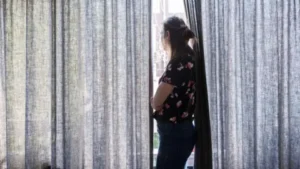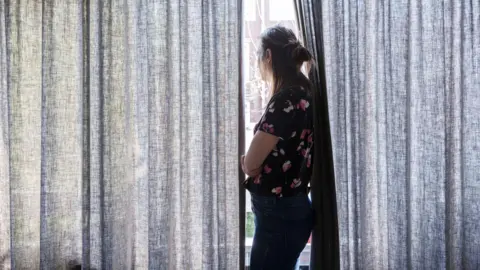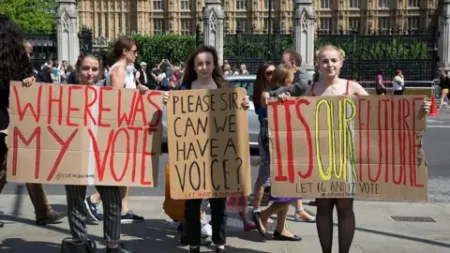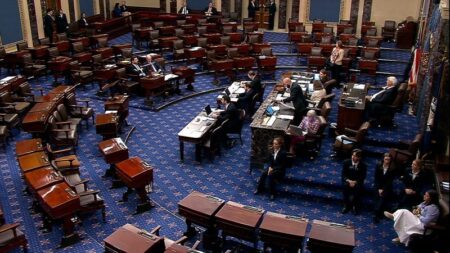The UK government has announced a significant investment of £53 million over the next four years to enhance an intervention program aimed at aiding domestic violence perpetrators in changing their behavior. This funding initiative is designed to enable these individuals to abandon abusive lifestyles, focusing specifically on the root causes of their aggression. The intervention program seeks to bridge a crucial gap in societal efforts to combat domestic violence, which continues to impose devastating consequences on victims and communities alike.
The groundwork for this intervention was laid through a pilot scheme that commenced in 2016, operating on a one-on-one basis with perpetrators. The project emphasized addressing issues such as substance abuse and personal conflicts, providing a supportive framework to facilitate change. The success of the pilot in curbing instances of domestic violence led the government to decide on expanding the initiative throughout England and Wales in response to a favorable independent evaluation.
Home Office Minister Jess Phillips emphasized the government’s commitment to providing victims with a “better and safer future” through this program. However, this robust approach has elicited skepticism from several domestic violence charities, who question whether the funding is sufficient to instigate necessary reforms. Critics argue that without more significant punitive measures, such as harsher prison sentences and stricter licensing for offenders not incarcerated, the program may struggle to deter serious domestic violence effectively.
The initiative, known as the Drive Project, has already been operational in areas like Essex, South Wales, and West Sussex. This program targets high-risk and repeat offenders, providing intensive, personalized case management for durations extending to 12 months. Concurrently, victims are assigned a dedicated independent domestic violence adviser to offer them crucial support through what is often a traumatic period.
Debbie Jones of the charity Resolute mentioned that practical deterrents for serious cases of domestic violence are paramount, advocating for more stringent legal consequences for offenders. Furthermore, Ellie Butt from Refuge pointed out that while the program may help to lower risks, it could inadvertently increase the strain on local services that aid survivors, emphasizing the need for a coordinated long-term investment throughout the entirety of support services.
An evaluation conducted by the University of Bristol revealed that the Drive Project significantly reduced incidents of domestic violence, showcasing an 82% decrease in physical abuse, an 88% reduction in sexual abuse incidents, and a 75% decline in harassment and stalking behaviors. Kyla Kirkpatrick, the head of the Drive Partnership, stated that victims deserve better accountability from those inflicting harm in their lives, affirming the project’s effectiveness in addressing these needs.
The Drive Project plans to expand into 15 new areas by March 2026, with an overarching aim for complete integration throughout England and Wales thereafter. Minister Jess Phillips highlighted that the legislation aims to shift focus from victims to the behavioral reform of perpetrators. Despite concerns about potential decreases in prison sentences for offenders, she assured that the full force of the law would still apply, highlighting that a majority of domestic violence offenders do not face incarceration.
An additional allocation of £230,000 is designated for training plainclothes officers to patrol at night, reinforcing efforts against predatory behaviors. The Labour Party has also made a pledge to halve violence against women and girls within a decade, signaling a commitment to strong legislative actions against this ongoing issue.
Amidst discussions about funding, the Northern Ireland Affairs Committee has called for greater financial resources to bolster support services and combat online abuse. Tonia Antoniazzi, committee chair, emphasized that the ongoing crisis concerning violence against women and girls requires urgent attention and cannot persist as it currently does.
The government is positioning this project as a prototype for a collaborative approach with charities, faith groups, and social enterprises to bolster its strategies for combating domestic violence. In a recent address, Prime Minister Sir Keir Starmer announced plans for a “Civil Society Covenant,” aimed at institutionalizing stronger partnerships between government and civil society in the pursuit of meaningful change. He emphasized the need for a balance of power and responsibility, moving away from an archaic top-down structure towards a more collaborative model that prioritizes real, tangible improvements to societal constraints evoked by violence and abuse.











